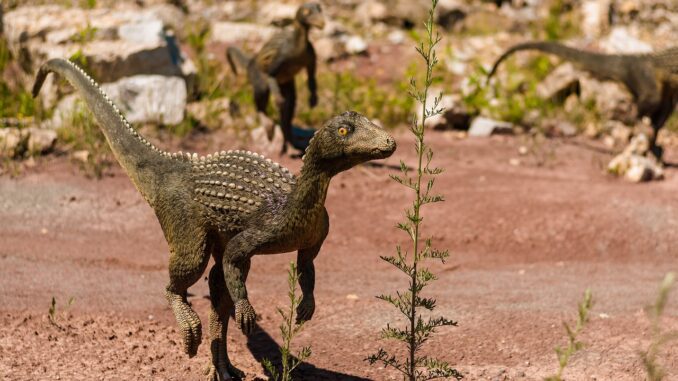
Dinosaurs knew something about anxiety
Anxiety is a common mental health condition that affects millions of people worldwide. While it may seem unrelated, there are valuable lessons we can learn from dinosaurs to better understand and cope with anxiety.
As an anxiety specialist in Chicago, I often draw parallels between the prehistoric creatures and the modern human experience. And while it is unlikely you will see any animals from the Jurassic period roaming the streets of Lincoln Park, I find these kinds of parallels to be useful – and maybe even a little funny.
In this blog post, we will explore how dinosaurs can provide us with insights into anxiety and offer strategies for managing it effectively.
1. Survival Instincts
Dinosaurs were remarkable survivors, adapting to changing environments and evolving over millions of years. Similarly, anxiety has an evolutionary purpose; it triggers our fight-or-flight response, ensuring our safety and survival in threatening situations. See our page on Panic Attack Therapy to learn more.
Understanding anxiety as a natural response can help us reframe it positively, recognizing its protective intentions.
2. Balance between Caution and Curiosity
Dinosaurs were cautious creatures, vigilant of their surroundings to avoid predators. However, they also exhibited curiosity and explored new territories.
Similarly, anxiety can be both a barrier and a catalyst for growth. Recognizing when caution is necessary and when it hinders us can help strike a balance, enabling us to face challenges while managing anxiety effectively.
3. Adaptability
The dinosaur kingdom witnessed diverse species with unique adaptations, allowing them to thrive in different environments. In the same way, individuals with anxiety can cultivate adaptability.
Learning to adapt involves understanding one’s triggers, developing coping mechanisms, and being open to change. By embracing flexibility, individuals with anxiety can navigate life’s challenges with resilience.
4. Strength in Numbers
Dinosaurs often lived in herds or packs, finding safety and support through communal living. Similarly, seeking support from others is crucial for individuals struggling with anxiety.
Connecting with friends, family, or support groups can provide a sense of belonging, empathy, and shared experiences, easing the burden of anxiety. Social support acts as a powerful tool in managing and overcoming anxiety.
5. Accepting Uncertainty
The extinction of dinosaurs serves as a poignant reminder that even the mightiest creatures can be brought down by uncontrollable circumstances. Anxiety often arises from the fear of the unknown or the inability to control outcomes.
Learning to accept and navigate uncertainty is a significant step in managing anxiety. Cultivating mindfulness, focusing on the present moment, and practicing self-compassion can help individuals develop resilience in the face of uncertainty. See our mindfulness therapy page to learn more.
Bringing It All Together
By examining the fascinating world of dinosaurs through the lens of a psychotherapist, we can glean valuable insights into anxiety and its management. Dinosaurs teach us that anxiety, while sometimes challenging, is a natural response rooted in our evolutionary history. Through the lenses of survival instincts, balance, adaptability, social support, and acceptance, we can develop effective strategies to cope with anxiety and lead fulfilling lives.
Remember, if anxiety becomes overwhelming or significantly impacts daily functioning, seeking professional help from a psychotherapist or mental health professional is crucial. Together, we can learn from the past to shape a better future for our mental well-being.
